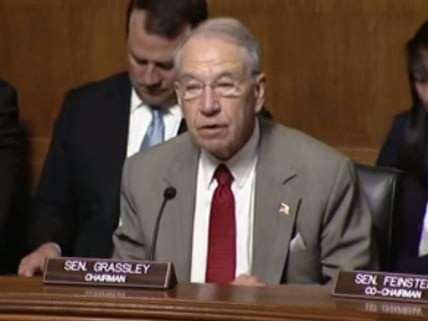Bureaucratic Barriers to Medical Marijuana Research Are Crumbling
Even prohibitionists agree that the process for approving studies should be streamlined.

This week the Obama administration eliminated a gratuitous bureaucratic obstacle to medical marijuana research and two vehemently anti-drug senators convened a hearing on how the approval process can be further streamlined. In my latest Forbes column, I explain the significance of these developments:
Two reviews published in The Journal of the American Medical Association this week conclude there is substantial evidence that marijuana relieves the pain, nausea, and spasticity associated with certain illnesses. But the researchers found little evidence to support marijuana's use in treating most of the other conditions it is said to alleviate.
In an editorial accompanying the review articles, Yale psychiatrists Deepak Cyril D'Souza and Mohini Ranganathan express dismay at the proliferation of conditions that cannabis supposedly can be used to treat, which include glaucoma, anxiety, depression, sleep disorders, Tourette syndrome, epilepsy, hepatitis C, lupus, fibromyalgia, Crohn's disease, Alzheimer's disease, Parkinson's disease, Huntington's disease, amyotrophic lateral sclerosis, and post-traumatic stress disorder. "It has been argued that the lack of high-quality evidence reflects the difficulty in conducting marijuana research in the United States," D'Souza and Ranganathan write. "If so, the federal and state governments should support and encourage such research so that high-quality evidence can be generated to guide decisions about medical marijuana use for the conditions for which the existing evidence is either insufficient or of poor quality."
For decades approval of such research, let alone support and encouragement, has been hard to obtain. Federal officials argued that there was not enough evidence of marijuana's medical benefits to justify removing it from Schedule I, the most restrictive category of the Controlled Substances Act. At the same time, they made it difficult to do the research necessary to provide such evidence by erecting gratuitous bureaucratic obstacles. But those obstacles are now beginning to crumble, reflecting a bipartisan consensus that the process for investigating cannabis-based medicine should be streamlined. These days even pot prohibitionists support medical marijuana research.


Show Comments (2)